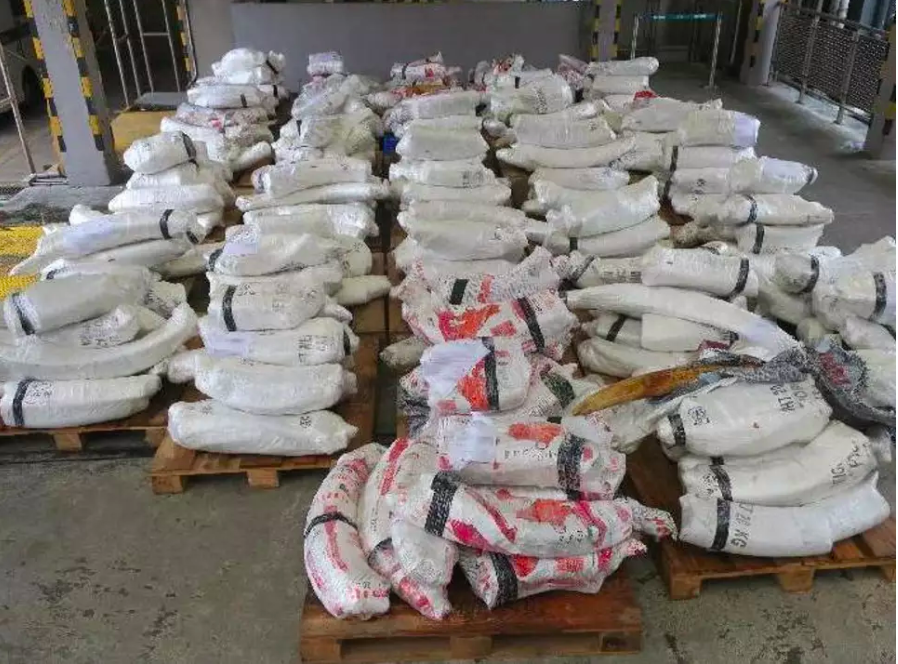"Adapt money-laundering laws for African trade to slow poaching"
Illegal wildlife trade thrives on lack of transparency in international export business, says Shamini Jayanathan, Director of Wildlife Protection at charity Space for Giants and a criminal barrister

Anyone in Kenya who does business outside the country, especially with American, British, or European customers, will be familiar with the three letters KYC.
Standing for ‘Know Your Customer’, this is the growing collection of laws, rules and regulations for international financial transactions designed to root out money-laundering and illegal cash flows.
KYC compels banks and other financial institutions to identify who they are dealing with, and to assess the risk that their services might be used for illegal purposes.
Questions about reasons for certain transactions might be an irritation for people running legitimate businesses. But KYC has become an important and effective safeguard against those who are not. We now urgently need something similar not just for international movements of money, but for the import and export of products globally, too.
Space for Giants, the conservation organisation I work for, has just published the results of an extensive study of wildlife crime prosecutions in North Central Kenya. Among evident progress on trial preparation and increasing convictions for ivory, sandalwood and rhino horn crimes - now at 67% in the courts we surveyed - one finding stood out.
The majority of prosecutions are still focused on the poachers and low-level middlemen rather than any of the bigger players higher up the criminal networks.
Why don’t the bigger fish end up in court? Chief among the reasons is that it is currently very hard to identify the source of seized consignments of illegal wildlife or forestry products, or to track precisely where they were heading. This often stalls investigations.
Agents facilitating transactions and shipments hardly vet their customers or their consignments. They are not compelled to collect sufficient, accurate information, and what they do collect is rarely comprehensive enough for investigations that may start long after the transaction.
Kenya should lead the world in tackling this with new legislation compelling import-export agents, shippers and brokers to ‘know their customers’, and carry out the same checks on their business as banks must for financial transactions.
This would be of deep benefit not just to conservation, but to all Kenyans. New catch-all Know Your Customer laws would make it far more complicated to move weapons, counterfeit medicines, drugs, stolen goods, and even people, as well as tusks, horns and scales.
Director of Public Prosecutions Noordin Haji agrees, saying that this idea from Space for Giants comes at “an opportune time” as Kenya “aggressively counters organised crime, corruption, and terrorism”.
“This concept is one of several approaches that, if adopted, can support law enforcement and financial regulatory bodies safeguard our financial systems against exploitation and manipulation by criminals,” DPP Haji told us. “We at ODPP look forward to initiating and leading this discussion with law enforcements agencies and other stakeholders to realise the application of this concept.”
The impact on wildlife crime would be enormous, because Kenya is now one of the world’s great transit routes for illegal wildlife products.
Between 2000 and 2017, there were more large ivory seizures in Kenya than anywhere else in Africa, and more than anywhere else in the world aside from Vietnam and Hong Kong, according to the Environmental Investigation Agency.
Fourteen separate incidents uncovered 24 tonnes of tusks, mostly moving through Jomo Kenyatta International Airport or the Mombasa Port. Prosecutions have started in 10 of those cases. To date only one has led to a conviction, which has now been overturned on appeal.
It is reasonable to assume that most of that ivory was not from Kenyan elephants. Frontline protection is robust here. It was likely from the great elephant killing fields of central Africa, and being trafficked through Kenya on its way to Asian markets.
The effects of new Know Your Customer laws in Kenya would therefore disrupt criminal networks in Africa’s remote hinterlands, in Asia’s mighty ports, and in backstreet shops still selling Africa’s precious heritage as trinkets, bangles, and show-pieces.
How would it work? A Task Force should be established to assess the idea’s viability, using the banking industry precedent and translating it to the contexts of Kenya’s ports and borders. It should include the Kenya Maritime Authority, the Asset Recovery Agency, the Attorney General’s Office, the ODPP, the Financial Investigations Unit, the Kenya Ports Authority, KRA and the Customs and Immigration authorities.
In the meantime, the East Africa Community Customs and Management Act 2004 already puts the onus to prove the lawfulness of transactions and shipments on accused parties. These stipulations should be robustly applied immediately.
To those who say that this cannot be done, that the criminal networks are too interwoven with corrupt systems that reward some in positions of power in Kenya, I say only this: look to banking.
Money-laundering and moving illicit funds were far harder to track and far higher in volume and reward than wildlife crime. Yet Know Your Customer has had a huge and swift positive impact there.
Kenya should lead Africa and the world, not for the movement of illegal products, but for enacting the legislation that adds to law enforcement agencies’ arsenals to defeat that movement in a positive and meaningful way.
Join our commenting forum
Join thought-provoking conversations, follow other Independent readers and see their replies
Comments
Bookmark popover
Removed from bookmarks